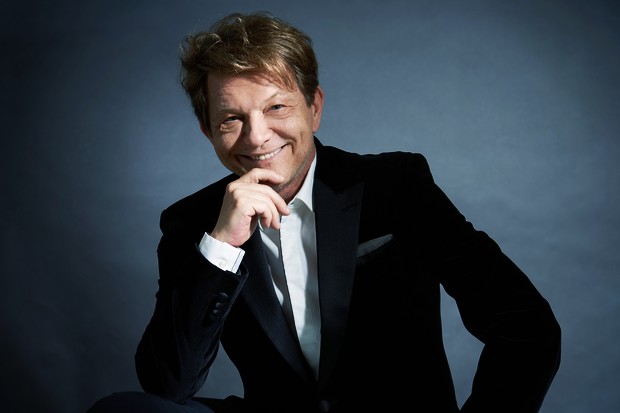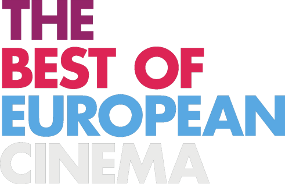Dragan Bjelogrlić • Director of Guardians of the Formula
“The Cold War has never stopped”
- The Serbian actor-director’s latest effort is a Cold War-set drama revolving around the first-ever human bone-marrow transplant

At Locarno’s Gran Caffè Verbano, we sat down with Dragan Bjelogrlić, the director of Guardians of the Formula [+see also:
film review
trailer
interview: Dragan Bjelogrlić
film profile]. The feature, screened in the Piazza Grande strand of this year’s Locarno Film Festival, is an intense, Cold War-set drama revolving around the first-ever human bone-marrow transplant, performed by Georges Mathé (Alexis Manenti) on a group of young communist scientists irradiated by a lethal dose of uranium and led by Professor Dragoslav Popović (Radivoje Bukvic). Mathé vehemently opposes nuclear weapons and feels genuine contempt for the professional endeavours of Popović and his team. On the other hand, they are doubtful of Mathé’s true intention to cure them.
Cineuropa: When did you start working on this film, and why did you decide to tell this story today?
Dragan Bjelogrlić: I started working on the script five years ago, and our story became very timely owing to the war in Ukraine. My opinion is that – since I live in the Balkans and maybe I feel this more than others – the Cold War has never stopped. That kind of tension in the world has continued [throughout the years]. So, the Cold War has just changed its form. At some critical moment, every 20 years, we experience that peak during which we see how some small things are enough to bring us close to catastrophe. So, the circumstances made our movie very timely, even though I discovered the [original] book six years ago, and the world didn’t know anything about this story.
How did you cast the actors playing Mathé and Popović?
For me, Mathé was a very important character [to cast]. When I saw Alexis Manenti in Les Misérables [+see also:
film review
trailer
interview: Ladj Ly
film profile], I knew he had some Serbian roots – his mother is from Yugoslavia. Then we met, and I found out that he spoke my language – for me, it was important that we understood each other. So, he was the first actor I cast.
Then I went through many auditions for the role of Popović. During the casting phase, I always filmed [the actors playing] Popović and Mathé together because I wanted to see how they could work together in the frame, not just separately. I wanted to find out whether they had some kind of chemistry together.
The cinematography is rich in dark tones and chiaroscuros, especially in the interior-set scenes, delivering a very gloomy atmosphere. Tell us more about the instructions and visual references you shared with your DoP, Ivan Kostic.
First, a very important choice was to work with anamorphic lenses. Our idea was to render the atmosphere of noir films from the 1950s and 1960s. The idea was to set up the lights, the shots and everything else to remind people of those films. [...] Also, we decided that, as the story moved on, the camera should get closer and closer to the actors. In the first 30 minutes, you see mostly full shots. As the drama intensifies, we change the lenses and focus on close-ups. […] We put a lot of effort into rendering the right atmosphere.
What about your work on the sound and score?
We worked a lot on the score, since the idea was not to illustrate the drama or what was happening in the shot. It had to be more of a background, something like an echo. During our sound-design work in Portugal, we mixed the score with the sounds of reactors, those of an empty hospital and those of certain vehicles. Then the score’s final track is totally different! There’s a huge shift there.
Speaking about your work with the actors, how did you manage to establish the “understated” mood of their performances? Was this a result of your work on set, or was it planned beforehand?
It’s always a combination of things. I had the general idea to develop the characters and [find out] what kind of acting method they’d have to use in order not to disclose too much from the beginning. Of course, my main job is acting – I’ve been acting for 50 years. I like to work with actors in front of the camera, rehearse with them and see what a certain situation presents us with – sometimes, we even change some of the lines. This is a crucial part of my work – for example, if you notice, Mathé only smiles twice throughout the film, and we did some very specific work on that.
Undoubtedly, there’s a strong French angle in this story. May I ask why no French co-producer was involved?
The problem was that, during the process, I was working on another movie, which was a very big local success [Toma [+see also:
film review
trailer
film profile]]. So, I simply didn’t have enough time. Any given French co-producer doesn’t want to give away their own money; they want to apply for some funding. And we didn’t have time to wait for that, even though a couple of big French studios showed some interest. Of course, it would have been much better if we’d had a French company following us, but I hope we’ll gain some interest from some French distributors.
Did you enjoy reading this article? Please subscribe to our newsletter to receive more stories like this directly in your inbox.















